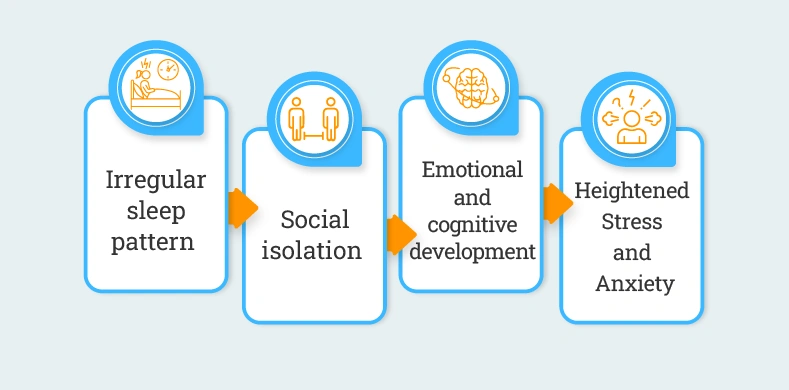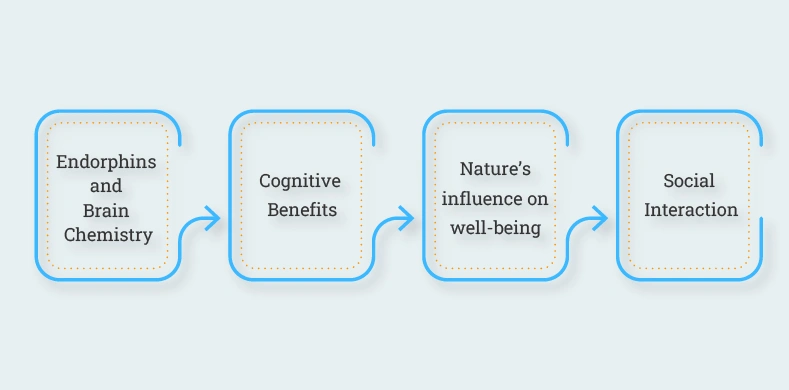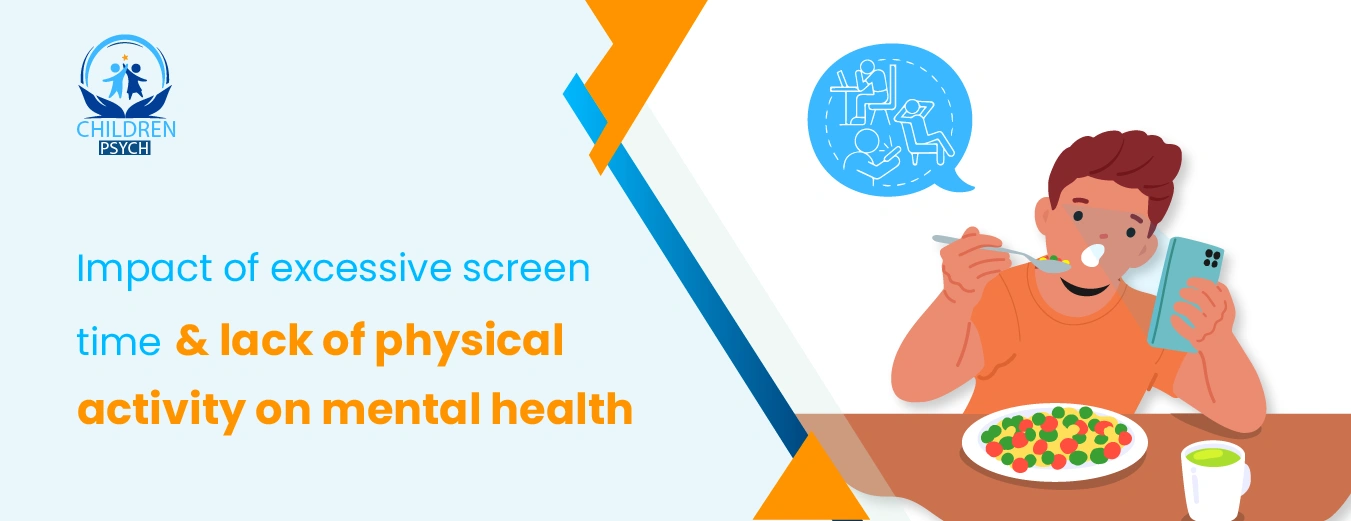In today’s technology-driven society, the excessive use of screen time is increasing day by day, especially in children and adolescents. Everyone is addicted to it, either for entertainment, work, or studies; this modern lifestyle has reduced physical activity. Both are unrelated, but linked together strongly. Moreover, a lack of physical activity and excessive use of screen time is bringing depression and anxiety to children and adolescents. Read this article if you want to know how screen time and a lack of physical activity are related.
The impact of excessive screen time on mental health
Excessive screen time has a profound effect on children. Here are some points by which you will get a better idea:

1. Irregular sleep pattern
Smartphones and excessive screen time lead to irregular sleep and cause insomnia. This disturbance of sleep causes mental health problems in children. Smartphone produces blue light, which disturbs the sleep cycle and causes issues with sleep.
2. Social isolation
Excessive use of smartphones causes issues with social interaction. Children stick to screens and engage themselves in games and social platforms, and don’t interact with the world. Not engaging and communicating with others brings the elements of isolation and depression.
3. Emotional and cognitive development
The development of the brain starts early. Many children have problems with communication and social cues because they don’t interact with the world. This causes emotional instability in children.
4. Heightened Stress and Anxiety
Excessive usage of social media platforms negatively impacts children’s minds as they do comparisons and cyberbullying. This causes mental health issues like depression, anxiety.
The role of physical activity
Physical activities are very important for the mental health of your child. Here are some factors that include:
1. Endorphins and Brain Chemistry
By remaining physically active, the brain produces neurotransmitters that help in regulating the mood. This helps in reducing the signs of depression and anxiety.
2. Cognitive Benefits
Staying physically active also maintains cognitive functioning, it increases the blood flow, and helps in memory, attention, and academics. Maintaining a physically healthy lifestyle helps reduce depression and anxiety.
3. Nature’s influence on well-being
Nature heals everything, and it influences our overall well-being. Getting exposure to green fields, grass spaces reduces the cortisol levels, which helps in reducing stress, depression, and anxiety.
4. Social Interaction
Staying physically active helps you engage with others, such as gaming groups, walking groups, and meeting new people. This helps reduce stress, anxiety, and other mental health issues.

How excessive screen time and a lack of physical activity linked?
There is a great link between higher use of screen time and a lack of physical activity that contributes to stress and depression in children. As smartphones have become an addiction, and causing issues with mental health like anxiety and depression. Children became dependent on smartphones, and this causes a lack of physical activities, as being physically active helps in coping stress, and enhances social interactions and communication.
Here are some factors that are linked together and cause mental health problems in children these include;
- Sedentary Lifestyle Fuels More Screen Time
- Cognitive and Emotional Drain
- Poor Sleep and Increased Stress
Tips to manage screen time and a lack of physical activity
Here are some tips by which parents should effectively manage screen time for children and a lack of physical activity.
1. Set limits
Maintain a limit of screen time according to their age, such as one or two hours a day or on the weekends. Some new features are available on smartphones where you can set limits.
2. Design screen-free areas
Create a screen-free zone where no one is allowed to use smartphones, such as dining area and bedroom.
3. Encourage physical activity
Motivate your child to participate in different sports activities, encourage them to pursue hobbies outside the screen, and choose games that will help them maintain physical activities like football, dancing, and more.
4. Parents as role models
Parents should reduce their own screen time and engage themselves in healthy activities, such as reading books and outdoor activities.
Conclusion
Using smartphones excessively and a lack of physical health is not small issues it impact mental health of your child. In a recent study, researchers indicate that higher use of mobile phones and a lack of physical activity are causing depression and anxiety in children. Mobile phones are making individuals dependent and addictive, the blue light coming from the mobile causes insomnia and affects the mind.
Moreover, to maintain the mental health of your child, encourage them to do outdoor activities, sports, and walk. Parents are the role models of their child, maintain your physical routine and use less screens, so that your child gets motivated and follows a healthy lifestyle.
Begin your healing at Children Psych
Is your child struggling with mental health issues? If you are looking for reliable support, then Children Psych should be your ultimate choice. At Children Psych, we have a team of experts who provide personalized treatments according to the condition of your child. Either your child is going through depression or anxiety. We are here to help.
We are here to help
We also provide telehealth services, now you can get your child’s mental health treatments done from the comfort of your home.
Book your consultation today for a better tomorrow!
Frequently Asked Questions
What issues can occur with excessive screen time usage?
Using screen excessively can impact sleep cycle, emotional and cognitive development, and cause depression and anxiety.
How does physical activity help in neurodevelopment?
By doing physical exercises, it enhances the blood flow and regulates mood.
Does physical activity help in regulating sleep?
Yes, by remaining physically active, our brain contains a hormone, melatonin, that regulates the sleep cycle.
Does screen time cause ADHD?
Yes, screen time causes ADHD and other mental health problems.
Does screen time cause issues with vision?
Yes, excessive usage of screen time causes issues with vision.




